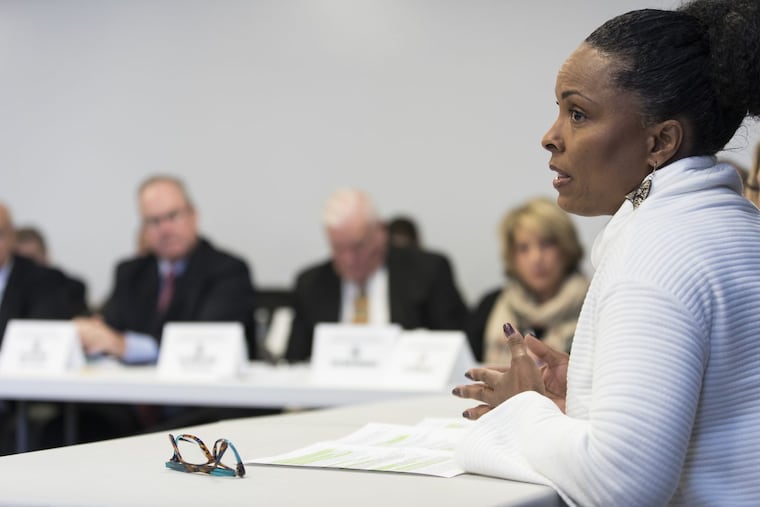Suspending driver’s licenses can be ‘cruel and unusual’ punishment for ex-offenders | Opinion
Last year alone, Pennsylvania's Department of Transportation suspended about 40,000 licenses for nonviolent, nondriving offenses.

Anna Hollis, executive director of Amachi Pittsburgh, a nonprofit that works on behalf of the 8,500 children of incarcerated parents in Allegheny County, is closely watching the Pennsylvania state Senate calendar and hoping for the best.
She knows that many parents will lose their driver's licenses due to minor, non-driving-related offenses. The nonsensical result is that they also lose their ability to work, run errands, pick up children in after-school programs, and perform many other basic, parental duties.
In her job, Hollis has had remarkable success keeping families together and helping individuals return to productivity after completing a court sentence. But the driver's license suspension policy is such a barrier to further progress, she says, that she agreed to chair the Driven to Work Campaign, the statewide effort to eliminate automatic driver's license suspensions as part of sentencing, where appropriate.
>> READ MORE: Gov. Wolf, waive the fee for birth certificates so state IDs are easier to get | Ronnie Polaneczky
"It's cruel and unusual punishment for individuals trying to turn their lives around," she says, "and [the] innocent children and other family members who depend on them."
Suspensions can affect people long after they've completed jail time or probation, often for offenses committed in their youth. They're particularly hard on those in rural and suburban areas where public transportation is limited or nonexistent.
As leaders of a community foundation and a private nonprofit who share the mission of improving the region's quality of life and economic future, we have been advocating to eliminate this barrier to employment for those who have paid their debts to society. That's why we, along with Hollis, are greatly encouraged by recent progress in the state Legislature.
A legislative package made up of H.B. 163 and H.R. 76 would remove driver's license suspension as a penalty for many non-violent offenses not connected to driving and eliminate a major barrier to employment for those trying to avoid returning to the criminal justice system. Thanks to a bipartisan 193-3 vote in the House in April, and to the diligence and commitment of Senate Transportation Committee Chairman John Rafferty, (R., Montgomery), we anticipate a vote and passage by the Committee next week.
>> READ MORE: Need your birth certificate? Be prepared to wait.
We're excited to see such strong bipartisan support, but we're all watching the clock: there's just 11 session days between Sept. 24 and Nov. 13 for the legislation to pass the General Assembly. As representatives of many stakeholders in the outcome, we're asking legislative leaders to make it a priority in the remaining voting period.
Last year alone, Pennsylvania's Department of Transportation suspended about 40,000 licenses for nonviolent, nondriving offenses. The new law would retain driving privileges for thousands annually and the benefits to the state would be substantial.
The numbers show that wages for those affected increase sharply when they have a driver's license. In the construction trades, it's a requirement for many higher-paying jobs, which are more likely to offer health insurance and other benefits that further smooth the roadway for re-entry to society. It's a win for workers and a win for Pennsylvania.
Since 2012, 15 states, including Virginia, Washington, and California, have recognized these issues and narrowed their driver's license suspension programs. Michigan's Republican-controlled legislature voted in 2014 to end the practice, calling it a "money grab" and an "immaturity penalty" for minor matters, such as nonpayment of parking tickets.
The best reason for Pennsylvania to discontinue this unfair policy is that programs like these overwhelmingly punish low-income people by trapping them in cycles of debt and poverty. A 2017 study by the National Center for State Courts found that "the financial and familial consequences of license suspension are so severe that 75 percent of drivers continue to drive after a suspension, which in turn exposes them to criminal prosecution and additional financial penalties," while also increasing costs of enforcement and even incarceration in those states.
The Pennsylvania legislation will improve life prospects for those who need it most, and it will improve the state government's bottom line. We urge legislators to be driven, as Hollis and her clients are, to move Pennsylvania forward and quickly pass H.B. 163 / H.R. 76.
Maxwell King is president and CEO of The Pittsburgh Foundation. Matthew Smith is president of the Greater Pittsburgh Chamber of Commerce, an affiliate of the Allegheny Conference on Community Development.